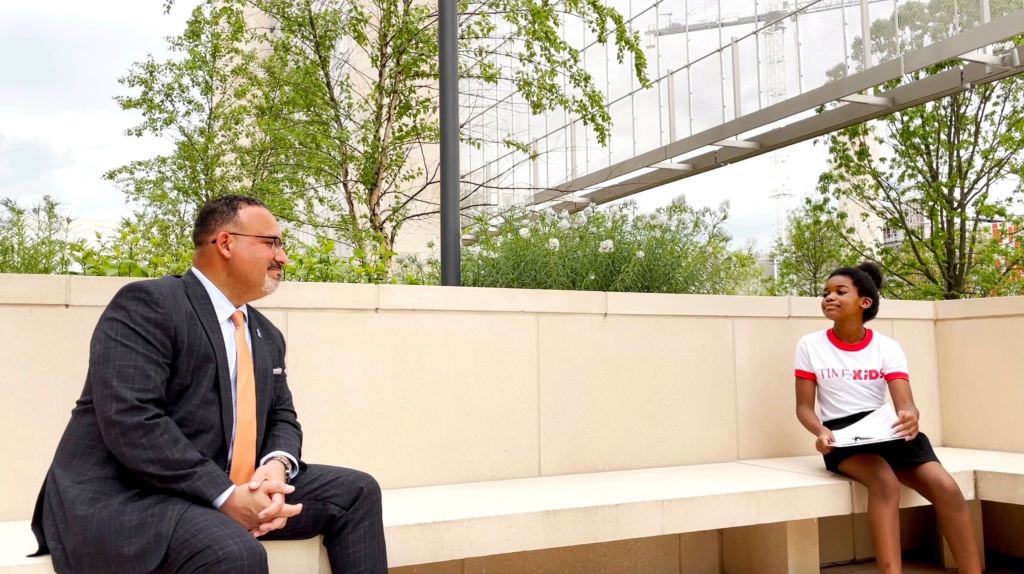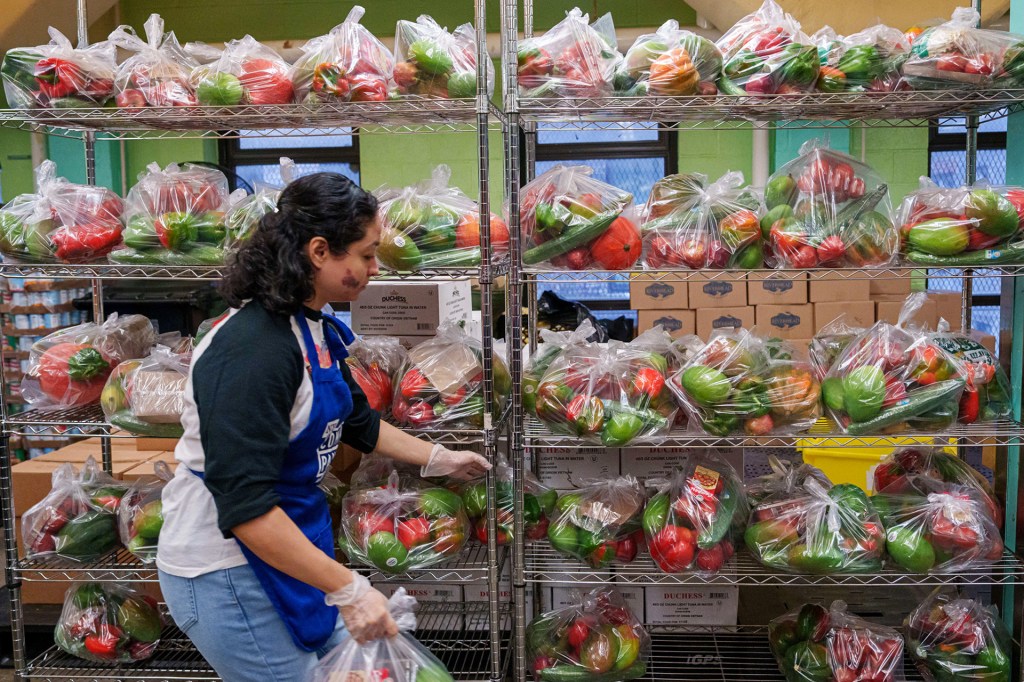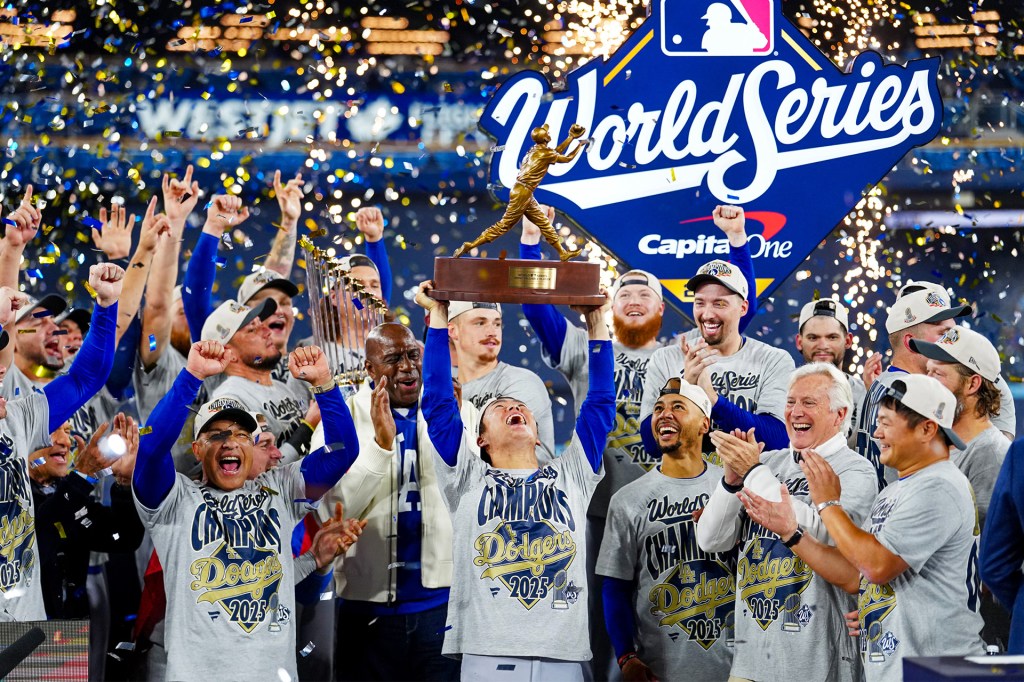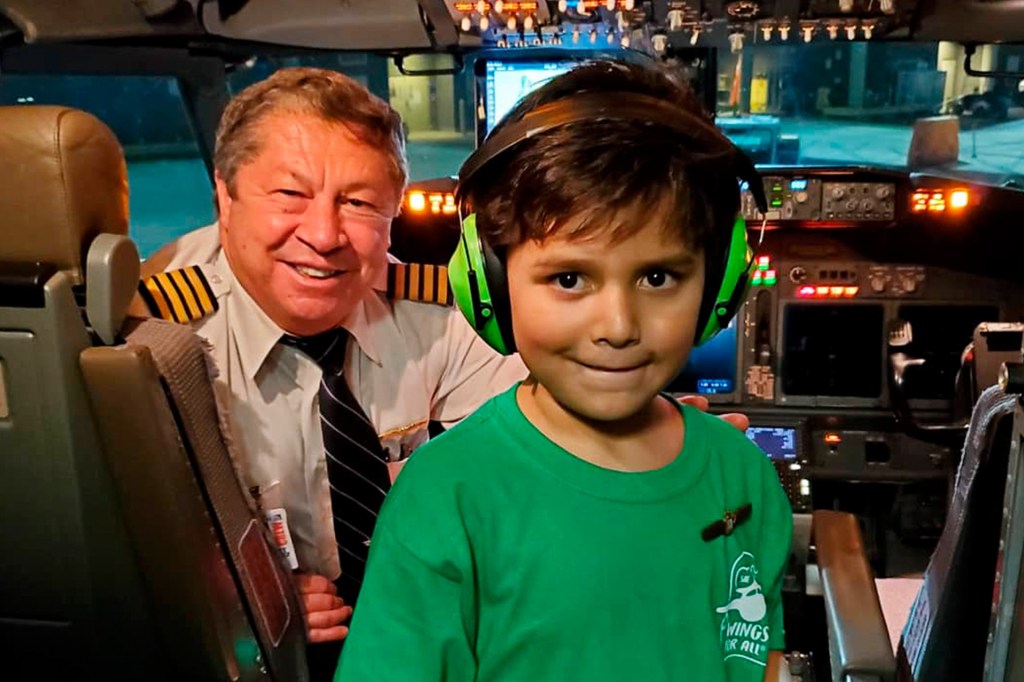Educating the Country

Once a teacher, always a teacher!
I met the secretary of education, Miguel Cardona, at the Department of Education, in Washington, D.C. I could instantly tell that he’s a true teacher at heart.
Miguel Cardona was sworn in as the 12th secretary of education on March 2, 2021. As the head of the United States Department of Education, he advises the president and the federal government on policies, programs, and activities related to education in the United States. Before he started this job, he was the commissioner of education in Connecticut, his home state, and also a public school educator there. It would have been so cool to have been a student in his fourth-grade class.
Secretary Cardona made me feel totally comfortable just being myself. I bet his vision is going to bring many great things to teachers and students. We talked outside, so we could stay safe and be socially distanced. After our interview, he took me to see his office—the view was amazing. He answered my questions and the questions below, from other TFK Kid Reporters from around the country. Talking with him was one of the most inspiring conversations I’ve ever had!
Bellen Woodard:
This week is Teacher Appreciation Week. Is there anything you would like to say to teachers?
Miguel Cardona:
I want to say thank you, because teaching is a tough profession. It’s a very rewarding profession. But this past year—I won't say this lightly—I really feel like teachers saved lives, because they were there for their kids, whether it was in person or connecting with them when they were at home, going through some hardship. This year, more than any other year, we need to, as a country, stand up and applaud our teachers for what they’ve done.
Bellen:
What is being done to promote equity in the school building? This includes what resources children learn from, and the curriculum.
Cardona:
In our country, ever since I was your age, the inequities in education were pretty bold. They were pretty obvious. So throughout my career—I was a fourth-grade teacher, I was a school principal at an elementary school, and then I worked at the district and state levels—I really cared about making sure all students had opportunities to be successful. And now, as secretary of education, one of the things that I want to do is make sure that the American Rescue Plan, which the president and Congress pushed forward, goes toward those students who need it the most. Because I think that in order for us to close those gaps, where all students can achieve high, we have to provide more support to those students who have been underserved historically, and students who need a little bit more support. So I’m totally in favor of that.
TFK Kid Reporter Afton Campbell, age 12, Surprise, Arizona:
How can students help welcome migrants into the educational system?
Cardona:
That’s a great question. We often talk about what the adults can do, but I think what the kids can do is kind of more important. Maybe welcome them by just smiling. It’s amazing what a smile can do for a student who’s new to a country, who maybe doesn’t know the language or the customs and the culture. A smile is a universal language. And also accepting them and bringing them in. If they’re playing kickball or something, let them play, even though they may not know the rules yet. You can teach them. But also be accepting of who they are. They might come with different food, they might have different customs or different dress. Accepting who they are and affirming them is a great way students can help.
TFK Kid Reporter Victoria Hanson, age 11, Chadds Ford Township, Pennsylvania:
I am in the sixth grade, and I have noticed that my school curriculum and my older sister’s high school curriculum both lack diversity. I think this contributes to the racial issues we have in this country. What are your plans to ensure that all states adopt and implement diversity and inclusion into their school curriculums?
Cardona:
That’s a great question. When I was commissioner of schools in Connecticut, we passed the requirement that all districts had to teach Black and Latino studies. We did that because we felt that the curriculum didn’t really reflect the beautiful diversity in our schools. I know students are more engaged in school when they see people that look like them in their stories, or they get to learn about other cultures. I think that’s important, not only for students of color, but for all students—to see diversity in their books. We want to encourage states to make sure that they’re looking at the curriculum and listening to students. If we listen to students regularly, we’ll hear about other ways we can improve our system.
TFK Kid Reporter Rory Hu, age 11, Cupertino, California:
The number of girls who pursue a STEM-based career is dramatically lower than the number of boys. What would you do to encourage more girls to look into STEM?
Cardona:
That’s a great question too. Reduce the stigma, [the idea] that it’s only a boys’ field. That’s absolutely not true. There are so many STEM opportunities for all students, including girls, and we have to have programs that introduce them to those things. Bring in people who are working in the STEM fields to talk to students. And it would help if those people were females, to model that the STEM fields are for girls, too.
TFK Kid Reporter Ian McKenna, age 16, Austin, Texas:
Currently, the states have varying metrics and rankings to assess graduation rates and students' preparedness for college. In order to create a more equal educational playing field for all students, are there any thoughts of creating national standards for excellence, both within states and across the country?
Cardona:
Another great question. It’s interesting, because most states prefer to have some autonomy around some of those decisions. And actually, our system is set up so that states are responsible for education. [The federal government] provides a supportive role, we provide some funding, and we protect the rights of students. But in terms of curriculum and standards, those are mostly state-based decisions. We do encourage high standards, and where possible, we try to encourage consistent practices so that there are not different standards in different states.
TFK Kid Reporter Jeremy Liew, age 13, Riverside, Connecticut:
What Meriden [Connecticut] Public Schools teacher inspired you?
Cardona:
Riverside’s not too far from where I live, where I raised my family. When I was in second grade, I had an art teacher, Mr. O’Neil. I remember being in his class, doing a picture about football—I love football. I remember looking up and it hit me then that he was my first male teacher. He was my first African-American teacher. And he was my first teacher that introduced a topic that I really loved—football. So I always admired him. To this day, I know Mr. O’Neil. And when I got to high school, there was a teacher named Mrs. Ransom, an art teacher also, who really inspired me to become a teacher. So those are two teachers who really influenced me.
TFK Kid Reporter Sophia Hou, age 11, Short Hills, New Jersey:
In the fall, if parents are vaccinated but young students are not, will students be required to go in person? And now that schools are prepared to go remote, will schools have snow days anymore?
Cardona:
Before I have a statement on the snow day thing, what do you think? Should we have snow days?
Bellen:
Yes. Because in a normal year, you wouldn’t have to go online.
Cardona:
Now let me ask you this: If your summer could start three days earlier, would you prefer to have snow days or just to do online school, so you could get out a little bit early?
Bellen:
I would probably prefer to have snow days.
Cardona:
There’s something about snow days, right? To know that you don’t have to get up and you can stay in bed a little longer. Yeah, I hear you.
So the [other] question is: If parents are vaccinated, should I require students [to go to school in person]? I’ll be honest with you, I know education and I know students, but I’m not a medical expert. So I would leave that to the medical experts to determine whether or not it should be required.
With regard to snow days, I remember talking to someone from Connecticut maybe three weeks ago, and they told me that they’re debating this very issue. But your perspective, as a fifth grader, would be to just keep the snow days, we’ll take on the [extra] days at the end of the school year. Good to know that. I’ll let them know.
TFK Kid Reporter Abby Rogers, age 11, Lahaina, Hawaii:
What is the Department of Education going to do to catch up all the students in public school who have lost a year of education compared to the students who have been going in person to private school the whole year?
Cardona:
That issue, Bellen, keeps me up at night. I want to make sure that when we go back to school, we’re relentless about making sure that all students have an opportunity to catch up not only academically but emotionally, too. Those students have been behind a computer for a year. They need to be around their friends. They need to be playing. So when we get back to school, it’s not just about making sure that they’re getting double the work. They have to have double the time to be with their friends and engaging in those things that make school fun.
TFK Kid Reporter Pranav Mukhi, age 11, South Setauket, New York:
In your nomination speech, you mentioned that you were hoping to forge opportunities out of the COVID crisis. Could you tell us about what opportunities you were hoping to forge?
Cardona:
That’s a great way to end the interview. The crisis really made life tough for all of us. We have a once-in-a-lifetime opportunity to come back stronger than we ever were before. And what I mean by that is, we have the opportunity to make sure all children—regardless of skin color, where they live, whether they have money or they don’t have money—have opportunities to go to college and achieve their dreams. We have opportunities to reimagine what school looks like and to allow students like you to have a greater voice in the learning that happens and in the curriculum. We have opportunities to reach students that we haven’t been able to reach before. There are so many opportunities to not only help our school system but lift our nation.
This interview has been edited for length and clarity.












